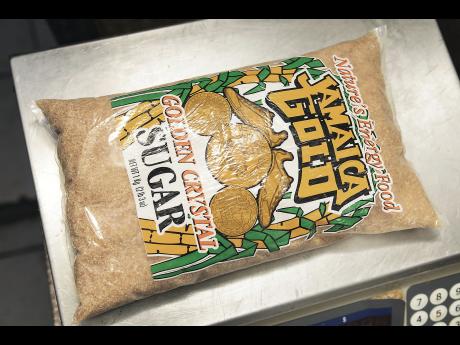Sweet smiles - 2016-2017 sugar crop gives main players reasons to hope
Key stakeholders in the sugar sector are singing the praises of local manufacturers, who had to navigate a raft of challenges but still managed to produce a combined 87,990 metric tonnes of sugar from 1.13 million tonnes of cane for the just concluded 2016-21017 crop year.
Heavy rainfall in mid-May that left acres of cane fields inundated, numerous incidents of illicit cane fires in Clarendon, St Elizabeth and Westmoreland, as well as an abrupt end to production at Frome Estate were among some of the challenges faced by the industry, but Major Hugh Baker, general manager of Jamaica Cane Product Sales, remains upbeat for the future.
"When we consider all that would have transpired throughout the crop, I am personally optimistic for the future of the sector," said Baker.
"It was a marginal increase of just 2,000 metric tonnes over last crop, but when we consider Appleton which would normally be producing 30,000 tonnes easily, just returning after a year's absence, and Pan Caribbean's decision to end production at Frome prematurely, this season has given us reason to hope," added Baker.
The Seprod Group has registered close to $4 billion in losses since it acquired the Golden Grove factory in St Thomas from the Government in 2009, including a $450-million hammering last year, which was blamed on the drought conditions the year before.
FINANCIAL LOSSES
Seprod started the 2016-2017 season hoping to break even with an output of about 13,500 metric tonnes of sugar, but laboured to just 11,297 metric tonnes of sugar from 151,060 tonnes of cane, which amounts to another year of financial losses, CEO Richard Pandohie revealed.
"From April onwards the weather was just amazingly ridiculous," said Pandohie.
"The bottom line is that we ended up significantly lower than the 13,500 tonnes we anticipated, which would have seen us break even, but with everything as it is, we will probably see about a $120-million loss this year."
"Based on what we have seen, things are going in the right direction," Pandohie added. "We are quietly optimistic that things will get better, so we will continue to run the plant, and hope that we will get some luck next year."
J. Wray & Nephew's Appleton Estate managed to churn out a creditable 19,132 tonnes of sugar from 300,684 tonnes of cane on its return to production, after sitting out 2015-2016 due to legal wrangling with Algix Jamaica.
Last week, Clement 'Jimmy' Lawrence, chairman of Wray & Nephew, told The Sunday Gleaner that the company is now preparing the factory and fields for the next crop.
Pan Caribbean Sugar Company said it was the lack of rainfall in the Westmoreland and Hanover sugar belt, and a subsequent poor yield in canes that forced it to decide to shutter operations at Frome after just 96 days.
"We ended production ... because Frome, that normally requires very little irrigation had a very limited amount of rain, that along with illicit cane fires resulted in a sharp reduction in cane production," CEO Liu Chaoyu told The Sunday Gleaner, through an interpreter.
The Chinese firm churned out 20,451 metric tonnes of the sweetener from 247, 078 tonnes of cane, far less than its own projection of 28,000 metric tonnes of sugar for the season, but now plans to start production for the next crop one month earlier.
MONYMUSK PRODUCTIONS
Monymusk started production late, with an ambitious projection of 15,000 metric tonnes, and did well to produce 11,230 metric tonnes of sugar from 176,029 tonnes of cane, but the Clarendon-based facility is shrouded in a cloud of uncertainty over its future, with owners Pan Caribbean opting to focus on Frome, and the Government unwilling to run the operations without some form of compensation.
The star of the season was the ever consistent Worthy Park Estate in St Catherine with an impressive 26,076 metric tonnes of the sweetener from 261,582 tonnes of cane.
"The virtue of Worthy Park is reliability," said Allan Rickards, chairman of the All-Island Jamaica Cane Farmers Association.
"Speaking from a farmer's point of view, you can set your clocks on your crops according to the operational schedule of Worthy Park because it never varies.
"Worthy Park has consistently produced a certain amount of sugar while the others have fallen short. When people criticise the industry, when they say that sugar is dead, when they say it is not viable ... we have Worthy Park as a testimony that the sector has a future," said Rickards.


